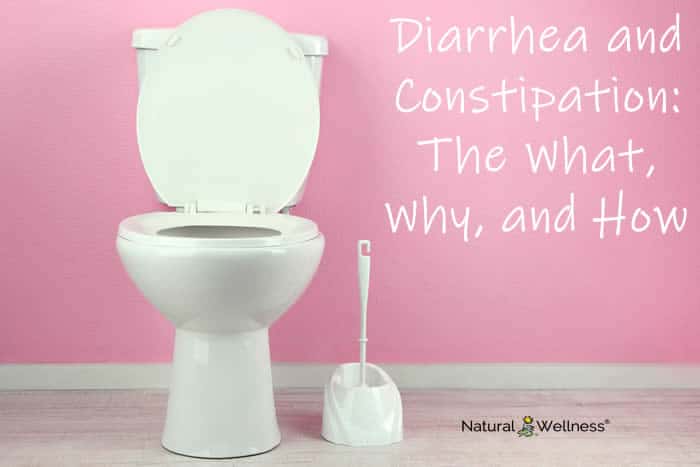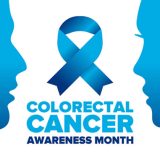

When it comes to pooping, we all do it and every time is not always the same. Sometimes the lack of “going” can cause pain and discomfort; on the flip side you could be constantly needing the toilet. Many factors can come into play that affect what happens when we go #2.
Symptoms and Causes of Diarrhea
Usually, diarrhea happens for only a short amount of time (around one to three days) instead of a constant basis. If it does happen more frequently, it can lead to serious complications. Diarrhea is a loose, watery stool that can come about for various reasons and affect anyone. Along with diarrhea you may also notice: (1)
- Lower abdominal cramping
- Bloating
- Nausea
More severe diarrhea can lead to symptoms such as:
- Fever
- Weight loss
- Dehydration
- Severe pain
- Vomiting
- Blood
Diarrhea is watery because it contains water and electrolytes from your body. This can lead to dehydration, electrolyte imbalance, and possibly even kidney failure. If you’re dealing with diarrhea, ensure that you’re drinking plenty of fluids to replace what is being lost.
So, what brings an episode of diarrhea about? Most of the time it’s a virus that infects your bowel (viral gastroenteritis). This is also referred to as intestinal flu and typically lasts only a few days. Other causes include:
- Bacterial infections
- Infections from toxins or other organisms
- Eating foods that upset the digestive system
- Allergies and intolerances to food
- Medications
- Radiation therapy
- Poor absorption of food
Antibiotics can also cause diarrhea, because these medications change the balance of all the good bacteria hanging out in your intestines and allows your colon to be taken over by “bad” bacteria.
Ways to Treat Diarrhea at Home
You can typically expect diarrhea to clear up on its own, unless it’s a severe case and that should constitute a trip to the doctor. You can help cope with the symptoms though with some easy home remedies. (2)
- Drink lots of clear liquids – With the loss of water, it’s important to continue to stay hydrated. Aim to get in water, broth, even juices. Avoid drinking caffeine and alcohol as they are diuretics which cause you to excrete more water out of your body via urine.
- Gradually include semisolid and low-fiber food to your diet – If you’re dealing with diarrhea, the last thing you want to do is continue to eat food that can upset your GI tract. When your bowels start to get back to normal, add foods such as crackers, toast, eggs, rice, and chicken.
- Certain foods may need to be avoided – Oftentimes, certain foods can make matters worse. Try avoiding things such as dairy products, fatty foods, high-fiber foods, and highly seasoned or spicy foods for a few days.
- OTC medication – If things are pretty rough, you can always try out an over-the-counter anti-diarrheal medication. This can help to reduce the watery bowel movements and control some more severe symptoms. It’s important to note that if the diarrhea is coming from a bacterial or parasitic infection, these kinds of medications can make things worse. It doesn’t allow your body to get rid of what is actually causing the diarrhea. Check with your doctor before you decide to go this route.
- Probiotics – You may want to consider taking a probiotic supplement or eat foods that contain “good” bacteria strains. A study published in the Journal of Pharmaceutical and Biomedical Sciences (3) found that Bifidobacterium longum (B. longum, a bacterial strain found in some probiotics, including Natural Wellness’s Ultra Probiotic Formula) helped to inhibit the growth of Escherichia coli (E. coli) and Staphylococcus aureus (S. aureus) in individuals struggling with bacterial diarrhea.
Symptoms and Causes of Constipation
Diarrhea may seem bad, but it can also be very painful to not be able to pass a stool either. Constipation can mean you’re dealing with infrequent bowel movements or difficulty passing them for several weeks or longer. It is described as having less than 3 bowel movements each week.
Symptoms of constipation include: (4)
- Lumpy or hard stools
- Straining when trying to go to the bathroom
- Feeling that you have a blockage preventing you from passing a stool
- Feeling that you have not completely passed the stool
If you’ve experienced two or more of these symptoms over the past three months, you may be dealing with chronic constipation.
There are several causes of constipation, which makes the stool move slowly through the digestive tract or prevent it from being eliminated effectively, which makes it hard and dry. Some causes include:
- Blockages in the colon or rectum, which could be caused from severe issues like colon cancer, rectal cancer, or a bowel stricture.
- Nerve problems around the colon and rectum, caused by neurological problems such as multiple sclerosis, Parkinson’s disease, or autonomic neuropathy.
- Issues with muscles involved with passing a stool – this could include weak pelvic muscles or inability to relax them.
- Hormone conditions can create issues with the balance of fluid in your body. Includes pregnancies, hyper or hypothyroidism, and diabetes.
- Medicines, such as pain relievers, iron supplements, and antidepressants.
- Lack of exercise.
Ways to Treat Constipation at Home
There’s about 40 to 50% of adults who deal with constipation on a regular basis, and it’s no question that you want to get things flowing normally again. Before turning to a laxative, try diet and lifestyle tips to manage the constipation.
Four tips include: (5)
- Stay hydrated – Aim to drink at least four to six glasses of water each day.
- Eat your fiber – It’s recommended to eat about 25 grams of fiber each day, but if you’re not used to that take it slow! Too much fiber at once could actually make constipation worse. Foods that contain fiber include apples, bran cereal, black beans, and Brussels sprouts.
- Schedule your stools – The longer a stool is hanging out in your intestines, the harder it becomes which makes it difficult to pass. Start your day with a good breakfast, then after give yourself time to sit in the bathroom for about 10 minutes. You may find that you get the urge to go.
- Probiotics (yes, again!) – When your gut is happy, you’re going to have healthy stools. That’s why making sure your “good” gut bacteria is thriving helps with many digestive issues. B. longum not only helps with diarrhea, but also constipation. A 2017 review (6) found that Bifidobacterium longum improved constipation in elderly individuals by 10-40% compared to when no probiotic was given.
Whether you’re suffering from diarrhea or constipation, there are many solutions you can try at home.




